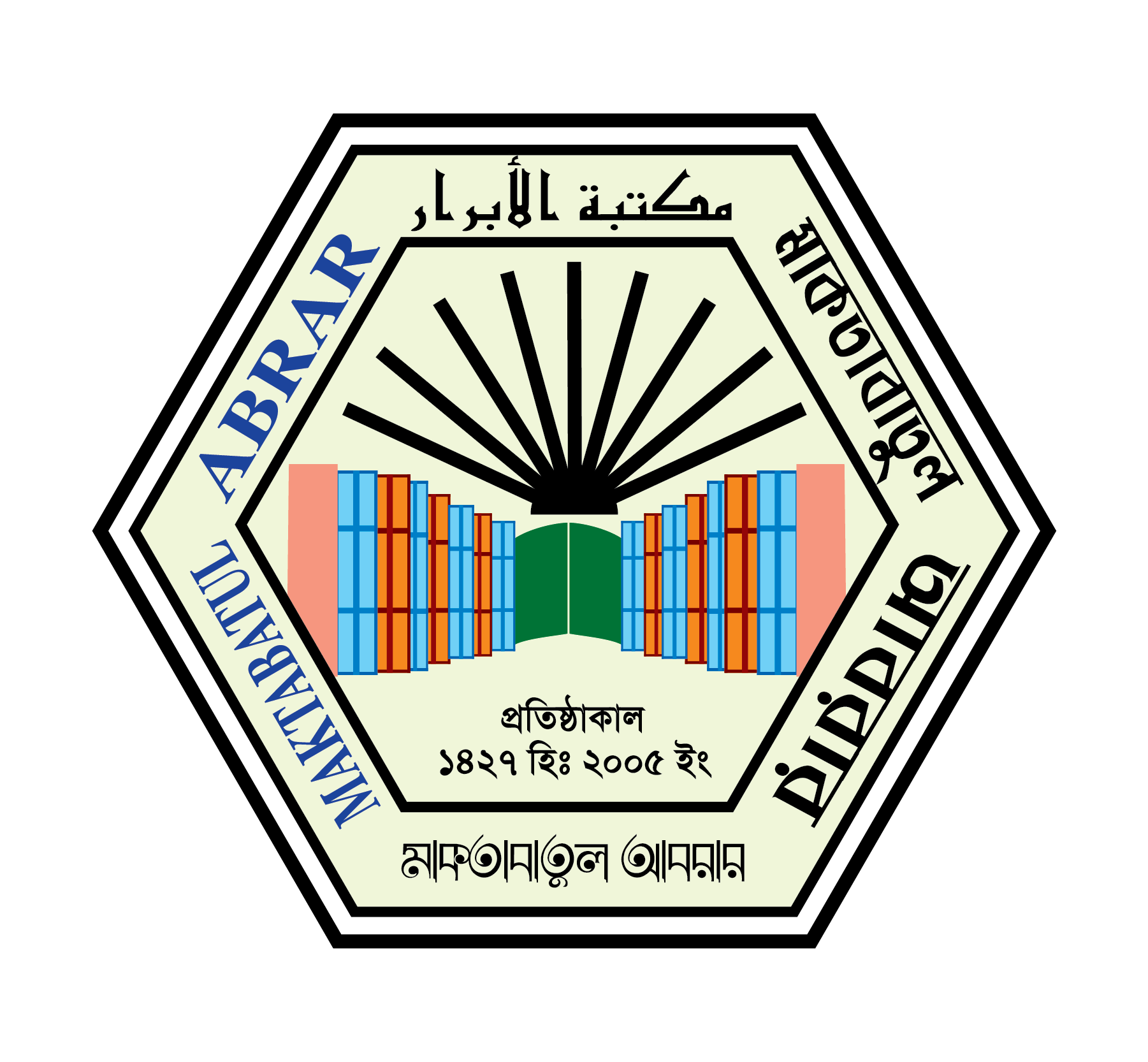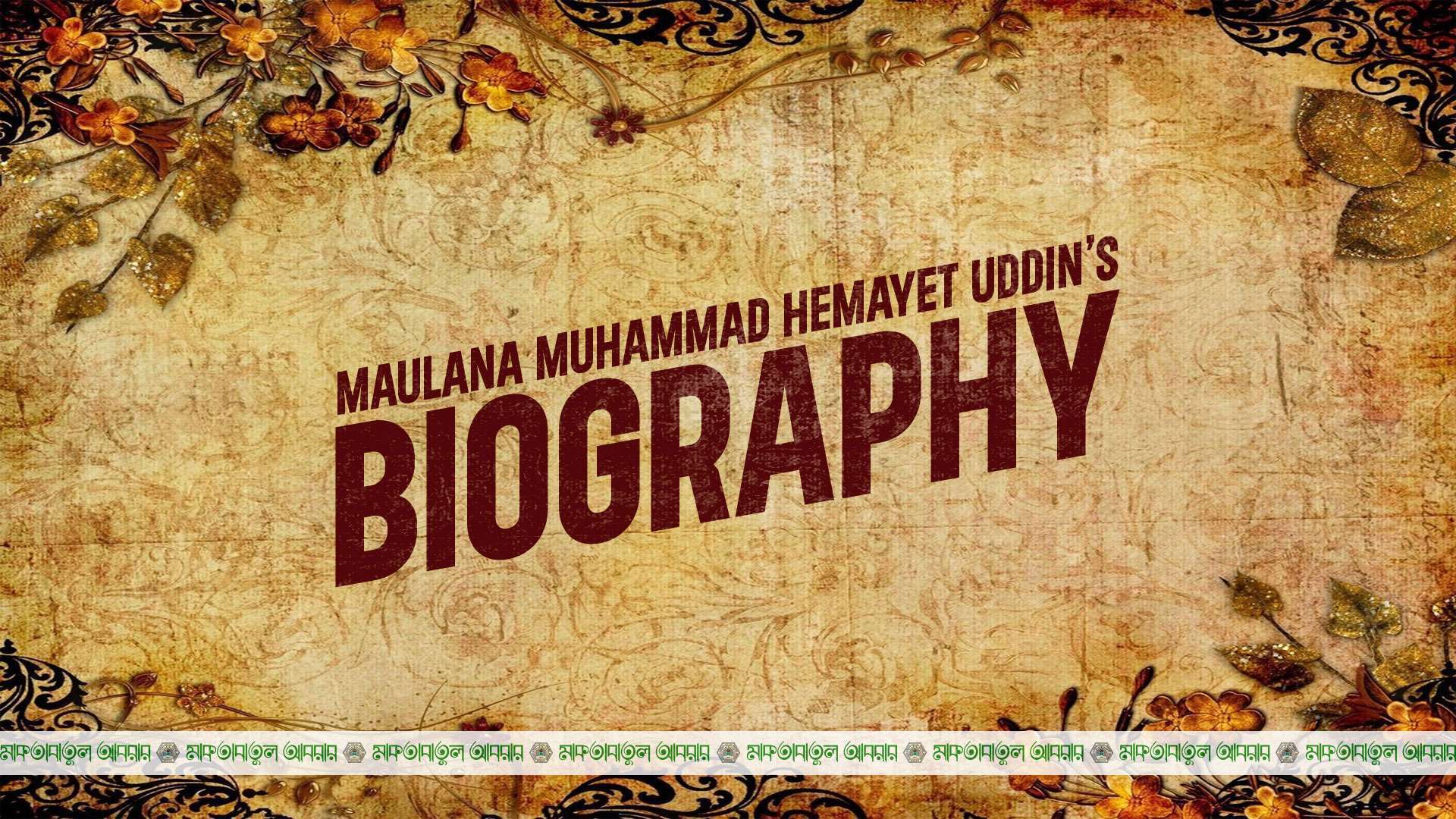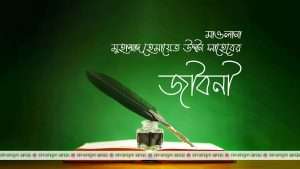Maulana Muhammad Hemayet Uddin
Biography
The famous Bangladeshi writer and researcher Alem (Islamic Scholar) Maulana Muhammad Hemayet Uddin was born in October 1960 in the village of Maishaghuni under Rupsha police station of Khulna district in a religious family.
His father maolvi Belayet Hossain, a student and khadem (servant) of Mujahid Azam Hazrat Shamsul Haq Faridpuri rahmatulla alaihi.
Educational life
After completing his primary education in the school, he completed Hefj in 1976 from Nurul Uloom Hafezia Madrasa, Gallamari in Khulna district.
He studied for one year at the Central Madrasa Darul Uloom in Khulna district, five years at the Central Madrasa Gowhar Danga Khademul Islam in Faridpur and four years at the Malibagh Jamia, a traditional educational institution in Dhaka. In 1986, he passed Takmil class from Malibagh Jamia. In the year 1987, Takmil class was re-launched in Darul Uloom Deoband, India, the traditional school of the Muslim world. He placed 1st in the Central Examination of Mutawassitah (Nahbe Mir) and Sanabiyyah Al-Ammah (Kafia) Jamaat, Gawhar Danga Befaq and 2nd in the Central Examination of Fazilat (Meshkat) and Takmil (Daoraye Hadith) Jamaat, Befaqul Madarisil Arabia Bangladesh.
He received training from Prominent linguistics teacher Dr. Kazi Deen Muhammad in Bengali language and literature.
Career
After graduation, he served for many years as a senior Muhaddis or Shaykhul Hadith in Malibagh Jamia Dhaka; Jamia Madania Baridhara, Gulshan, Dhaka; Jamia Madania Rajfulbaria, Savar; Jamia Subhania, Uttara Dhour, Dhaka and Islamia Madrasa, Islampur Dhaka. From 2010-2011 academic year to the present (2022) He has been serving as the Senior Muhaddith and Mushrif of Tafsir department in Jamia Islamia Darul Uloom Madania (Jatrabari Bara Madrasa).
Since his graduation, besides teaching, he also served as the Imam and Khatib of Baitul Atiq Jame Mosque (Chapra Masjid) in West Nakhalpara, Dhaka for 23 years (1987-2009).
Special skills
He specializes in Islamic psychology, Islamic geography and mapping, and Tarjama and Tafsir of the holy Quran. He also has special skill in interpreting dreams.
He is a reclusive seeker of knowledge. Away from all political activities and movement-oriented activities, he devoted himself exclusively in teaching, studying, researching and writing. He has written in Bengali, Arabic and Urdu.
Composition and compilation
He has been involved in writing since his student days. Hundreds of essays written by him during his student life are included in the Islamic Encyclopedia published by the Islamic Foundation of Bangladesh.
He is famous for writing basic books. He has written books on almost all the basic subjects of Islamic knowledge and science. Such as: Islami Akida o Bhranto Motobad regarding Iman-Aqeedah; Ahkam Zindegi and (for women) Ahkamun Nisha, Fiqhun Nisha on Masael; Fazaile Zindegi on Fazail; Bayan o Khutbah on Mawaiz; Quran o Sohih Hadise Bornito Islami Itihas on Islamic history; Islami Bhugol on geography; Hajj o Umrar Map & Quran o Islami Itihaser Map on maps; Islamic Monobiggan (Islamic psychology) on science; Bhasa o Sahitto Proshikkhon on language and literature; Jodi Jibon Gorte Chan on life formation Etc.
His Islami Akida o Bhranto Motobad (The Islamic Beliefs and Misguided Doctriness), Islamic Monobiggan (Islamic psychology), Islami Bhugol (Islamic geography) and Fiqhun Nisha are included in the syllabus of many educational institutions. The book Islami Akida o Bhranto Motobad (Islamic Beliefs and Misguided Doctrines) has been approved by Befaqul Madarisil Arabia Bangladesh and has been nominated as a collaborative syllabus on the return of Fazilat (Meshkat) Jamaat. His books Ahkame Zindegi and Fazail Zindegi are taught in many mosques and Ahkamun Nisa in many gatherings of women. His books are appreciated by the scholars of all walks of life, including the educated society in Ulama and General Education.
List of books written
Among his books published so far (as of January 2022) are:
- Ahkame Jindegi
- Fazayele Jindegi
- Islami Akida o Bhranto Motobad
- Boyan o Khutba 1-3 part
- Islamic Monobiggan
- Ahkamon Nisa
- Fiqhun Nisa
- Jodi Jibon Gorte Chan
- Nofs o Soytaner Sathe Mokabela
- Ahkame Hajj
- Kotha Sotto Motlob Kharap
- Choshmar Ayna Jemon
- Bhasa o Sahitto Proshikkhon
- Torike Talim
- Deeni Dawater Molniti (Translate)
- Al-Istifadah Bi Sarhe Sunane Ibn Mazah
- Toloware Noy Udharotay
- Chinta Chetonar Bhul
- Quran o Sohih Hadise Bornito Islami Itihas 1-5 Part
- Ulamaye Haquer Songrami Itihas (Translate)
- Islami Bhugol
- Misore Koyekdin (Travelogue)
- Hajj o Umrar Map
- Quran o Islami Itihaser Map
- Namaz o Rujar chirosthayi Calendar
Unique features
Hazrat Maulana Hemayet Uddin Sahib can be said to be the father of two complete scriptures. (1) In the past, scattered information of Islamic psychology was scattered in the writings of Akabir Aslaf. But he was the first to combine all the issues related to Islamic psychology to transform Islamic psychology into a complete scripture and wrote a book called ‘Islamic Psychology’. As such, he is the father of complete Islamic psychology. (2) In the past, there were various books of Ulama Keram only on the information of Ilmunnujum or astrological geography of Islamic geography. There were other scatterbrains of geography. But he was the first to combine all the issues related to Islamic geography and make Islamic geography a complete scripture and wrote a book called ‘Islamic Geography’. As such, he is the father of complete Islamic geography.
In the awakening of the inspiration of knowledge and science
At one time the ulama and talaba had very little interest in Islamic psychology and Islamic geography and maps. He has trained on these two subjects for a long time. Many of the trainees are now training in these two subjects. As a result, the curiosity of Ulama and Talaba towards these two subjects has also increased.
Social reform
Some of his writings continue to play a role in reforming Muslim society. At one time in our society there were misleading books like Maqsoodul Muminin and Neyamul Quran in learning all the Islamic rules and regulations. The book ‘Ahkame Zindegi’ written by Maulana Hemayet Uddin Sahib with all kinds of rules and regulations of life is now taking place in every house and conveying the correct knowledge about all the faith-aqeedah, muamala muasarah, masala masayel of worship and moral character. At one time in many mosques of the country, the narration was completed by saying something like a story. The statement of the mosque would not have been discussed in the way that Islam has given direction to all aspects of life. As a result, people were unaware of many aspects of life. In order to remedy this condition, he wrote a book titled ‘Bayan O Khutba’ for the purpose of Imam and Khatib. This book called Bayan and Khutba is completed in 3 volumes. It contains all kinds of statements to discuss throughout the year and all aspects of life. The book has reached the imams and khatibs in the mosques. Al-Hamdu Lillah Many mosques in the country are now discussing all aspects of life, subject-based systematic discussions.
International Invitational Activities
He has taken initiative to translate eminent Islamic books written in Bengali into various international languages and to deliver necessary new books online and offline in order to deliver Islamic books to those countries which have Muslims but lack Islamic books. To this end The International da’wat mission (IDM)
منظمة الدعوة العالمية عن طريق تأليف وترجمة الكتب الإسلامية في شتى لغات العالم
Has formed an international invitation organization. The activities of the company are ongoing. Currently the work of translating and composing books in the following 10 international languages is in progress.
English,
Arabic,
Urdu,
Hindi,
Mandarin Chinese,
Russian,
Spanish,
Swahili (African language),
French,
German.


